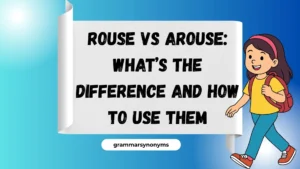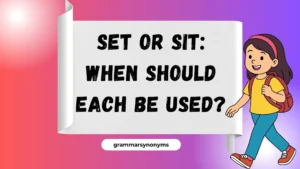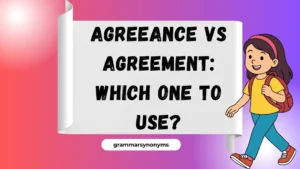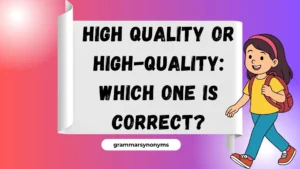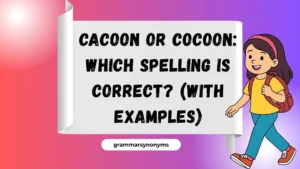When someone shares bad news, finding the right words can be tough. Saying “sorry to hear that” is polite and kind — but it can sound a bit generic or repetitive when you truly want to comfort someone. Choosing warmer, more personal alternatives can make your empathy feel more genuine and heartfelt.
Below, you’ll find 30 thoughtful ways to express care, compassion, and understanding when someone is going through something difficult. Each alternative includes a definition, explanation, real-life example, best use, tone, and extra notes to help you express yourself with warmth and sincerity.
What Does “Sorry to Hear That” Mean?
The phrase “sorry to hear that” is a sympathetic response used when someone shares bad or sad news. It’s a way to show empathy and acknowledge their feelings.
It doesn’t mean you’re apologizing for causing the problem — it simply conveys that you feel compassion for what the other person is going through.
Example:
“I’m really sorry to hear that you lost your job. I know how stressful that must be.”
Is It Professional or Polite to Say “Sorry to Hear That”?
Yes, it’s both professional and polite — but context matters.
In a workplace setting, it’s perfectly acceptable to say “I’m sorry to hear that” when responding to a colleague’s personal loss, illness, or bad news. However, for more personal or emotional situations, you might want to choose a warmer, more comforting variation to sound sincere rather than formulaic.
Example (Professional):
“I’m sorry to hear that your project got delayed — let me know if I can assist.”
Example (Personal):
“I’m really sorry to hear that you’re struggling lately. That sounds really hard.”
Pros and Cons of Saying “Sorry to Hear That”
ProsConsIt’s polite and respectfulCan sound impersonal if overusedEasy to say in any contextLacks emotional depth in close relationshipsWorks both in writing and speechMight seem like a routine responseShows empathy quicklyDoesn’t always provide comfort or support
Verdict: It’s a safe and decent phrase — but personalizing your empathy makes a much stronger impact.
Synonyms For “Sorry to Hear That”
- That must be really hard for you
- I can’t imagine what you’re going through
- My heart goes out to you
- I’m thinking of you
- That sounds really tough
- I’m here for you
- You don’t deserve this
- I’m so sorry you’re going through this
- You’re in my thoughts
- I wish there were words to help
- That’s really unfortunate
- I feel for you
- I understand how you feel
- That sounds awful
- I’m sending you strength
- I wish things were easier for you
- I hope you’re holding up okay
- You’ve been in my thoughts lately
- That’s really sad to hear
- I’m wishing you comfort and peace
- I know that must be difficult
- That’s so disheartening
- I’m truly sorry for what you’re facing
- You’re not alone in this
- Take all the time you need
- I’m so moved by what you’re going through
- You’re so strong to be handling this
- I know words can’t fix this
- I hope you find comfort soon
- You’re in my heart right now
1. That Must Be Really Hard for You
Definition: A comforting acknowledgment of someone’s emotional pain.
Explanation: This phrase shows that you recognize the difficulty of what they’re experiencing, making it more personal and empathetic than a generic apology.
Example:
“That must be really hard for you — I can only imagine how you’re feeling right now.”
Best Use: When someone shares something emotionally heavy like grief, loss, or disappointment.
Tone: Compassionate, understanding.
Additional Notes: Works well both in personal and professional contexts.
2. I Can’t Imagine What You’re Going Through
Definition: An expression of empathy without assuming their feelings.
Explanation: It shows that you respect their unique experience and understand that words may not fully capture their pain.
Example:
“I can’t imagine what you’re going through right now, but I’m here if you need someone.”
Best Use: When comforting someone going through something deeply personal.
Tone: Sincere, gentle.
Additional Notes: Avoid adding clichés like “everything happens for a reason.”
3. My Heart Goes Out to You
Definition: A heartfelt way of saying you feel deep sympathy.
Explanation: This phrase sounds warm and emotional, perfect for expressing care in moments of loss or sadness.
Example:
“My heart goes out to you and your family during this difficult time.”
Best Use: When someone is grieving or facing emotional hardship.
Tone: Emotional, kind.
Additional Notes: Ideal for condolences and sympathy cards.
4. I’m Thinking of You
Definition: A gentle way to show ongoing emotional support.
Explanation: It conveys that the person is on your mind and that you care about their wellbeing.
Example:
“I’m thinking of you and hoping things get better soon.”
Best Use: When you want to show quiet, ongoing empathy.
Tone: Soft, reassuring.
Additional Notes: Great for text messages or follow-up notes.
5. That Sounds Really Tough
Definition: Acknowledges that what they’re going through is challenging or painful.
Explanation: It validates their feelings without trying to fix or minimize the situation.
Example:
“That sounds really tough — I’m so sorry you’re going through that.”
Best Use: In friendly, supportive conversations.
Tone: Empathetic and kind.
Additional Notes: Good for both minor and serious situations.
6. I’m Here for You
Definition: A short, powerful phrase showing availability and support.
Explanation: It lets the person know they’re not alone, offering comfort and presence.
Example:
“I’m here for you if you ever want to talk or need anything.”
Best Use: When someone needs emotional or practical support.
Tone: Warm, supportive.
Additional Notes: Simple yet deeply meaningful.
7. You Don’t Deserve This
Definition: An empathetic phrase acknowledging unfair hardship.
Explanation: It validates the person’s feelings and shows you understand the injustice of their situation.
Example:
“You don’t deserve this — I wish things were different for you.”
Best Use: When a friend or loved one faces an unfair challenge.
Tone: Emotional, compassionate.
Additional Notes: Avoid if it might sound dismissive; keep it sincere.
8. I’m So Sorry You’re Going Through This
Definition: A softer, more emotional version of “sorry to hear that.”
Explanation: It expresses genuine concern and connects emotionally with the other person’s struggle.
Example:
“I’m so sorry you’re going through this right now — it’s completely understandable to feel upset.”
Best Use: When someone faces emotional stress or pain.
Tone: Sincere, heartfelt.
Additional Notes: Excellent for both texts and in-person conversations.
9. You’re in My Thoughts
Definition: A polite and caring phrase showing emotional solidarity.
Explanation: It communicates support and spiritual presence even if you can’t physically be there.
Example:
“You’re in my thoughts and I’m hoping for brighter days ahead for you.”
Best Use: In sympathy cards or long-distance support.
Tone: Gentle, thoughtful.
Additional Notes: Often used with “and prayers” if appropriate.
10. I Wish There Were Words to Help
Definition: An acknowledgment that no words can fix pain, but you still care deeply.
Explanation: It’s a humble, honest expression that feels deeply human and sincere.
Example:
“I wish there were words to help — just know I’m thinking of you.”
Best Use: When words feel inadequate, such as during grief.
Tone: Honest, empathetic.
Additional Notes: A touching way to show heartfelt sympathy.
11. That’s Really Unfortunate
Definition: A polite and formal way to show regret and sympathy for someone’s situation.
Explanation: This phrase is often used in professional or polite settings where emotional language might not be appropriate but empathy still matters.
Example:
“That’s really unfortunate — I hope things start improving soon.”
Best Use: When responding to a coworker or acquaintance’s bad news.
Tone: Professional, sympathetic.
Additional Notes: Works well in emails or business conversations.
12. I Feel for You
Definition: A direct and warm phrase that conveys shared empathy.
Explanation: It shows you’re emotionally attuned and that their experience affects you too.
Example:
“I really feel for you — that sounds incredibly difficult.”
Best Use: When you want to show deep personal compassion.
Tone: Empathetic, genuine.
Additional Notes: Avoid overuse; it’s best in heartfelt moments.
13. I Understand How You Feel
Definition: A phrase showing emotional understanding and solidarity.
Explanation: It reassures the person that they’re not alone in their emotions.
Example:
“I understand how you feel — I’ve been there before, and it’s not easy.”
Best Use: When you’ve experienced something similar.
Tone: Supportive, relatable.
Additional Notes: Avoid saying this if you don’t truly understand; it may sound dismissive.
14. That Sounds Awful
Definition: A natural, conversational way to validate someone’s pain.
Explanation: It’s straightforward and compassionate, showing genuine concern.
Example:
“Oh, that sounds awful — I’m so sorry you’re dealing with that.”
Best Use: In close or informal relationships.
Tone: Empathetic, honest.
Additional Notes: Great for verbal responses; feels authentic and spontaneous.
15. I’m Sending You Strength
Definition: A hopeful, uplifting phrase showing emotional encouragement.
Explanation: It conveys positive energy and support to help someone stay strong.
Example:
“I’m sending you strength and courage as you navigate this.”
Best Use: For messages of encouragement or sympathy cards.
Tone: Warm, empowering.
Additional Notes: Ideal for emotional or spiritual support.
16. I Wish Things Were Easier for You
Definition: An empathetic acknowledgment of someone’s struggles.
Explanation: It expresses sincere care and understanding, without pity.
Example:
“I wish things were easier for you — you’ve been handling it with so much grace.”
Best Use: When someone is facing ongoing hardship.
Tone: Gentle, heartfelt.
Additional Notes: Perfect for long-term challenges like illness or recovery.
17. I Hope You’re Holding Up Okay
Definition: A tender phrase that checks in on someone’s emotional well-being.
Explanation: It conveys concern and care, especially when you don’t know exactly what to say.
Example:
“I hope you’re holding up okay — please reach out if you want to talk.”
Best Use: Text messages or casual conversations with friends.
Tone: Compassionate, friendly.
Additional Notes: Good follow-up message after hearing bad news.
18. You’ve Been in My Thoughts Lately
Definition: A personal phrase that shows continued empathy and care.
Explanation: It reminds the person they’re not forgotten and you genuinely care.
Example:
“You’ve been in my thoughts lately — I hope you’re finding moments of peace.”
Best Use: After some time has passed since hearing bad news.
Tone: Thoughtful, kind.
Additional Notes: Perfect for long-distance or online communication.
19. That’s Really Sad to Hear
Definition: A simple, direct phrase expressing sorrow and empathy.
Explanation: It’s conversational and suitable for personal or professional settings.
Example:
“That’s really sad to hear — I’m so sorry for your loss.”
Best Use: When responding to news of grief, disappointment, or tragedy.
Tone: Sympathetic, respectful.
Additional Notes: Avoid overusing; add personalization if possible.
20. I’m Wishing You Comfort and Peace
Definition: A gentle, poetic phrase showing emotional support and calmness.
Explanation: It conveys deep sympathy, particularly for grief or hardship.
Example:
“I’m wishing you comfort and peace in this difficult time.”
Best Use: For condolences, sympathy cards, or heartfelt texts.
Tone: Soft, soothing.
Additional Notes: Ideal for written messages or memorial expressions.
21. I Know That Must Be Difficult
Definition: A validating way to show understanding and compassion.
Explanation: It helps the other person feel seen and acknowledged in their struggle.
Example:
“I know that must be difficult — I’m here if you need support.”
Best Use: When offering emotional reassurance.
Tone: Empathetic, calm.
Additional Notes: A safe choice for professional sympathy too.
22. That’s So Disheartening
Definition: A polite yet emotional way to express sadness for someone’s situation.
Explanation: It fits both formal and informal settings while maintaining warmth.
Example:
“That’s so disheartening — I was really hoping things would go differently for you.”
Best Use: In messages of disappointment or setbacks.
Tone: Kind, respectful.
Additional Notes: Works well in business and personal conversations alike.
Read This: 30 Other Ways to Say “In My Opinion” (With Examples)
23. I’m Truly Sorry for What You’re Facing
Definition: A sincere and heartfelt acknowledgment of someone’s pain.
Explanation: It goes beyond casual sympathy to express deep emotional connection.
Example:
“I’m truly sorry for what you’re facing right now — it’s completely understandable to feel overwhelmed.”
Best Use: When someone is dealing with a major loss or hardship.
Tone: Heartfelt, compassionate.
Additional Notes: Adds genuine emotional depth.
24. You’re Not Alone in This
Definition: A supportive phrase that reassures someone of your presence.
Explanation: It’s powerful because it emphasizes solidarity and care.
Example:
“You’re not alone in this — I’ll be with you every step of the way.”
Best Use: When offering ongoing emotional or physical support.
Tone: Encouraging, loyal.
Additional Notes: Best for close relationships.
25. Take All the Time You Need
Definition: An empathetic way to give space for healing.
Explanation: It shows patience and understanding while offering emotional freedom.
Example:
“Take all the time you need — don’t rush your healing process.”
Best Use: When someone needs time off or space.
Tone: Supportive, calm.
Additional Notes: Excellent for workplace or personal empathy.
26. I’m So Moved by What You’re Going Through
Definition: An emotional expression showing genuine compassion.
Explanation: It conveys how much their situation emotionally touches you.
Example:
“I’m so moved by what you’re going through — your strength is incredible.”
Best Use: When offering deep sympathy or admiration.
Tone: Emotional, heartfelt.
Additional Notes: Use sparingly to maintain authenticity.
27. You’re So Strong to Be Handling This
Definition: A phrase of encouragement and empathy.
Explanation: It validates their struggle while reminding them of their resilience.
Example:
“You’re so strong to be handling this — I truly admire your courage.”
Best Use: When you want to comfort and uplift.
Tone: Supportive, encouraging.
Additional Notes: Avoid if it may pressure them to appear “strong.”
28. I Know Words Can’t Fix This
Definition: An honest phrase recognizing that sympathy alone may not be enough.
Explanation: It shows emotional maturity and sincerity.
Example:
“I know words can’t fix this, but I want you to know I care deeply.”
Best Use: During sensitive emotional conversations.
Tone: Genuine, humble.
Additional Notes: Works beautifully in heartfelt messages.
29. I Hope You Find Comfort Soon
Definition: A hopeful and caring phrase for future healing.
Explanation: It’s positive and forward-looking, showing that you believe in their recovery.
Example:
“I hope you find comfort soon and that brighter days are ahead.”
Best Use: When expressing optimism after bad news.
Tone: Gentle, hopeful.
Additional Notes: Perfect for written sympathy messages.
30. You’re in My Heart Right Now
Definition: An intimate and heartfelt phrase showing emotional closeness.
Explanation: It’s warm and deeply personal, ideal for comforting loved ones.
Example:
“You’re in my heart right now — please know I’m thinking of you.”
Best Use: In close personal relationships.
Tone: Emotional, affectionate.
Additional Notes: A perfect closing for sympathy cards or heartfelt notes.
💬 Conclusion
Finding the right words to comfort someone takes empathy and mindfulness. Saying “sorry to hear that” is kind — but choosing more personal, heartfelt alternatives can truly touch someone’s heart. Each phrase above helps you communicate genuine compassion, whether you’re offering condolences, encouragement, or quiet support.
Small words, when chosen thoughtfully, can make a big difference in how someone feels seen, understood, and cared for.
❓FAQs
1. What can I say instead of “sorry to hear that” professionally?
Try “That’s unfortunate”, “I understand how challenging that must be”, or “I hope things improve soon.” They sound polite and considerate.
2. What’s a warm alternative to “sorry to hear that” for a friend?
Use “That must be really hard for you” or “I’m here for you.” They feel more heartfelt and supportive.
3. Can I say “sorry to hear that” in an email?
Yes, it’s professional and kind. Just make it personal by adding something like, “Let me know if I can help.”
4. How do I respond when someone says “sorry to hear that” to me?
You can say, “Thank you, that means a lot,” or “I appreciate your kindness.”
5. What’s the best way to show empathy in words?
Speak from the heart, use gentle tones, and avoid clichés. Phrases like “I can’t imagine what you’re going through” show genuine care.

“Mia Rose at Grammar Synonyms is your ultimate guide to mastering language with style and precision. Whether you’re looking to enhance your vocabulary, perfect your grammar, or discover the ideal synonym, Mia Rose offers expert resources and creative solutions to help you express yourself flawlessly. With Grammar Synonyms, unlock a world of language possibilities and elevate every piece of writing you create.

